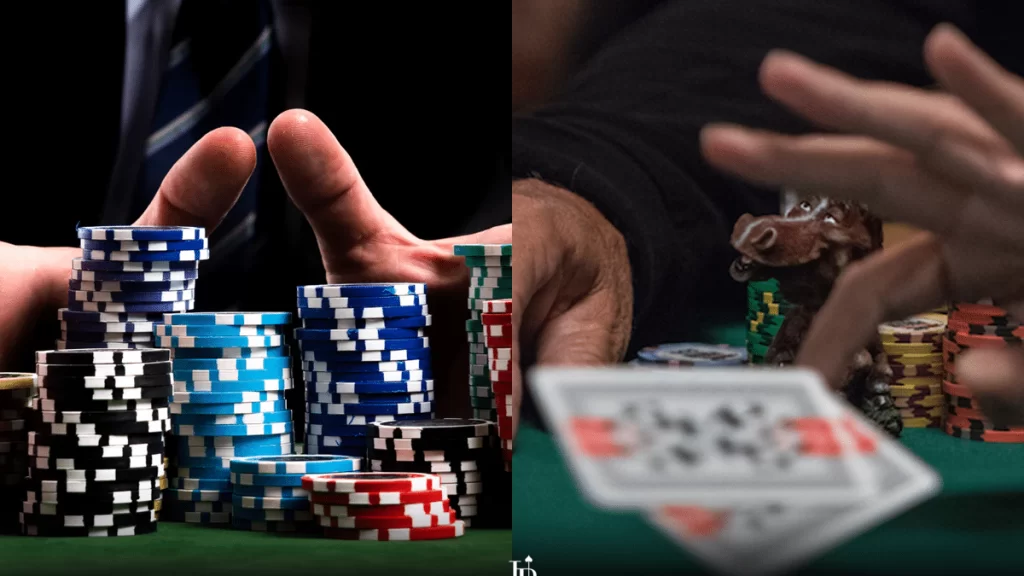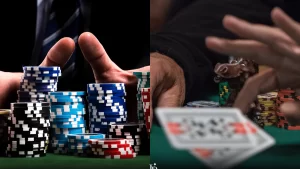
The professional aspiration is to play tournament poker, ideally at the highest stakes, as a player cannot make life-changing sums playing cash games. To make the leap from cash games to poker tournaments is a long one, and beginners should take care to learn the ropes of tournament poker before diving into the deep end.
Be a tight player early in the tournament, then open up your ranges a little more as the tournament progresses. Look for savvy players who are reloading smaller stacks. Pounce on them with regular button raises and bigger sizings.
Warm Up
Whether you are a beginner or an expert, warm-ups are good poker exercises to get you prepared as these techniques will help you stay focused and avoid mishaps, and make visualisation and affirmation, two prime tools, effective like they are.
Steve Carver, going into every event, would do small little math exercises, like calculating pot odds or remembering his short stack shoving ranges, so when it came time for tournament play, he was prepping the brain to be ready to go whether it was –-20 or –-30 players at the table. Jeff Shulman gets into the zone by removing some stimuli (kicking everybody out of the hotel room), while adding others (balancing himself while he plays). A pre-tournament regimen for poker players might include these kinds of small exercises to prepare your brain to function at a high level for the marathon you’re about to play. Intentional practice helps players narrow in focus when they need to, and we can get better at it if we really put our minds to it. Like an athlete doing pregame visualisation, anyone heading into a tournament could benefit from doing a quick series of low-fidelity math problems related to pot odds or outdoor scenery, depending on their preferred style of play. Maybe you do these on your way to the poker room, or while you’re brushing your teeth before heading to bed. And on the big day? Hopefully, you’ll be ready for whatever cards come your way.
The night before, get eight hours of good, undisturbed sleep. For quicker recovery times, some research also suggests that an afternoon nap can help refresh your brain.
Pre-flop betting phase
How you make your decision in pre-flop play really does determine how good your table image is throughout those early hands, and also how you play your entire hand strategy. You can invest time learning your opponents and calculating your pot odds pre-flop. It will make tournament play so much easier when you’re confronted with the immediate decisions.
Players can also get rid of distractions at pre-flop (before the first round of cards), for example, what if having a full bladder and sitting through a 12-hour tournament prevented you from concentrating? Use this time to empty your mind, alleviate bathroom stress, and improve focus and win rate. An unstressed distraction-free player will last longer at final table level. Get a good nights sleep before tournaments, as RELAXATION will allow you to feel lively!
Blinds
As the blinds and antes go up as a tournament progresses, a player must adjust or die. When short stacked you need push/fold strategies so that you can survive and make day 2.
Watching players get overly tight with another table staring them in the face is another important aspect of a pre-tournament warm-up that will allow you to take blinds and orphaned pots from others who can’t shake the jitters. Raise from every position late in a tournament.
LearnWPT Pro LuckyChewy gives you a strategy lesson on how to pick apart hands street by street in this episode of LearnWPT, while illustrating common poker errors that can negatively affect your tournament games.
Betting intervals
Tournaments are different to cash games in that you don’t get to stop when you’ve collected enough chips – you have to play until you win or bust. So you’re likely to be seized by emotion at some point in a tournament – you might be short-stacked. If that happens, it’s crucial that you understand proper short-stack ranges so that your decisions are optimal at that particular point in the tournament. A good way to stay disciplined and improve your overall play in the process is to set some form of task-based goals that will keep you disciplined at the tables and also aid in the development of your overall play.
ICM
In order to be a successful tournament poker learner, you have to pay the most attention to the magic of ICM. Especially in the bubble of a tournament and at the final table where every player’s performance is more crucial to the overall result. Using the endgame tool of ICMIZER, you can solve almost any preflop ICM spot and calculate the GTO shove/call ranges for every preflop play for both players.
Because many players show up unwilling or unable to do those things, spending even an hour or two working on ICM calculations and memorising short stack shove/call ranges prior to tournament day can give you an edge. PokerCoaching Premium members can use Chain The Charts to drill off-balance preflop spots across all stack sizes.







